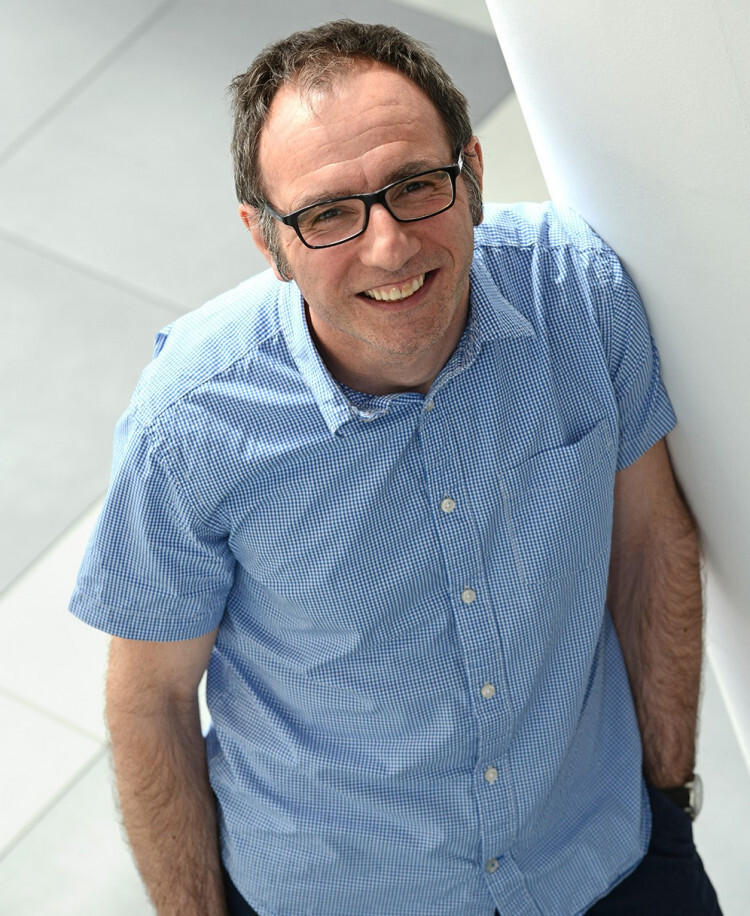News & Updates
My first three months as Food Standards Scotland’s Chief Scientific Advisor

Our new Chief Scientific Advisor, Professor David Gally, introduces his new blog series and what led him to the position, highlighting the opportunity of our dietary-improvement role.
My first three months as Food Standards Scotland’s (FSS’s) Chief Scientific Advisor have flown by, so I wanted to introduce myself and explain my interest in the role.
I have held a Personal Chair in Microbial Genetics at The Roslin Institute, University of Edinburgh for 15 years and have more than 30 years of scientific research experience, and now want to contribute in a public service role beyond academia.
FSS plays an important part in keeping the nation’s food safe and, critically for me, trying to improve public health through evidence-based information and advice provided to consumers and Scottish Government around our diet and nutrition.
I’ve spent these initial weeks getting to know FSS, its experts and stakeholders. This includes meeting equivalent scientific advisors at the Food Standards Agency (Robin May), Scottish Government’s Environment, Natural Resources and Agricultural (Andrew Millar), the Scottish Science Advisory Council’s Chief Scientist (David Crossman), Chief Veterinary Officer for Scotland (Sheila Voas), Chief Plant Health Officer for Scotland (Gerry Sadler) and Chief Scientific Advisor Marine (Colin Moffat).
These meetings alone show the range of areas that food and drink are connected to, and impact on. The food and drink that sustains and nourishes us is literally at the heart of individual, societal and planetary health.
As we move forward FSS aims to embrace a more coherent approach, coupling the food we eat with supporting local suppliers and healthy sustainable diets. I strongly believe that prioritising healthy, ethical food can benefit the nation both in terms of its wellbeing and economically.
Access to healthy and affordable food for all, and tackling health inequalities should be a national aspiration and of course we are battling the opposite: highly promoted, easy access, long-life and cheap goods many of which contain high levels of sugar, salt and fats. Sadly such foods are a major contributor to poor diet and impact on the high levels of diet-related chronic disease in Scotland, including heart disease, Type 2 diabetes, stroke and some cancers.
A study* published last month shows that deaths in Scotland and England related to obesity now outstrip those due to smoking.
Reducing poor health outcomes linked to overweight and obesity will require a multi-pronged approach to diet and nutrition. The prize is huge; the health costs alone are in the billions and so we must continue to make a case for investment in all the areas that FSS can help make a difference to peoples’ lives.
Diet isn’t just a health issue; it’s an economic one too. High levels of absence through poor health associated with diet will affect our economic performance.
The Covid-19 pandemic brings home the critical importance of a healthy population, as living with overweight or obesity is a major contributory factor to increased risk of poorer health outcomes from COVID-19.
A recent report** highlighted that the UK has the lowest healthy life expectancy in Western Europe, with Scotland of course playing its part. This is an issue that has been growing over several decades as we have failed to deal with chronic public health problems, mostly diet-related, that are now major risk factors for serious illness and death from Covid-19. These are compounded in communities where there is more deprivation, living conditions are worse and jobs offer no flexibility; in the end producing a "perfect storm" for the pandemic.
We have a massive challenge to work out how we can work together to make a difference and I look forward to playing my part in FSS to influence policy, behaviour, food standards and access to healthier foods to improve these deep-routed dietary issues.
If the current pandemic is not a call to arms to improve our diet, then when?
Professor David Gally provides independent advice and challenge across FSS’s science functions, ensuring FSS’s evidence-base is robust, relevant and of the highest quality.
Sources: